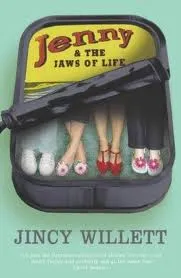The Magic of the Sentence
In the March 18th edition of the NY Times, there’s a piece by Jhumpa Lahiri called “My Life’s Sentences.” It’s the first in a new series – Draft, “on the art of craft of writing” – and I was happy to see this idea kicked off by a consideration of sentences, those magical, mysterious guts that make up a body of prose.
I’ve always been fascinated by sentences and their ability to react differently in our bodies; by which I mean that the effectiveness and potency of a sentence, I believe, lies almost entirely within the reader. I can remember being perfectly arrested by sentences I read in novels in high school and bewildered by how those were not the passages we were assigned to analyze. The chasm between the sentences that we were told were “important” and the ones that resonated with me, within me, was totally befuddling: sometimes I felt like, Am I the only one who’s reading this thing properly? Why is the teacher skipping over this part? This sentence is a goddamn miracle!
 In “My Life’s Sentences,” Lahiri says, “The most compelling narrative, expressed in sentences with which I have no chemical reaction, or an adverse one, leaves me cold.” That’s it, right there. Chemical reaction. She quotes Joyce’s short story “Araby,”specifically, the sentence: “The cold air stung us and we played till our bodies glowed.” And about it, she says: “This seems to me as perfect as a sentence can be.”
In “My Life’s Sentences,” Lahiri says, “The most compelling narrative, expressed in sentences with which I have no chemical reaction, or an adverse one, leaves me cold.” That’s it, right there. Chemical reaction. She quotes Joyce’s short story “Araby,”specifically, the sentence: “The cold air stung us and we played till our bodies glowed.” And about it, she says: “This seems to me as perfect as a sentence can be.”
Really? That sentence does nothing for me. My chemical makeup must be very different from Lahiri’s. But like her, I find it is the sentences that pull me back to a piece I haven’t read in years. I’ll take a novel down from the shelf, not able to recall the story therein at all, but then I’ll flip it open and see my own faded pencil underlines, and all of a sudden I remember everything: where I read it, when, how I felt when it entered by body. Yes, my body remembers these things, remembers that I’ve been carrying these sentences around all along, like a phantom limb.
I imagine many readers can relate to this. Sentences affect me in ways nothing else can: not visual art, not music, not even raw, real-time human emotion pointed at me like an arrow. Only sentences hit the mark – the heart – and stay. But they aren’t my sentences. Lahiri says, about her own sentences, when she’s writing: “They enter into the blood. They seem to replace it for a while…When a book is finally out of my hands I feel bereft. It is the absence of all those sentences that had circulated through me for a period of my life. A complex root system, extracted.”
That’s so interesting to me. The architecture of my inner life seems to be made up entirely of other people’s sentences. I suppose that’s because I’ve never written a novel: I can’t imagine what it must be like to be commanded by your own combinations of words. It sort of blows my mind to think about it.
Off the top of my head, I can conjure five sentences, written by other people, that I carry in me. They are all short, and have, in turns, served as mantras, lifelines, north stars, touchstones, since I first read them. Here they are. I hope you’ll add some of your own written talismans below.
“My wife says that the baby wants the dog.” – “Chablis,” Donald Barthelme
“A ghost ship, wide and pale, in dark harbor.” – “Julie in the Funhouse,” Jincy Willett (The main character describing his parents bed. My god.)
“Something must have happened to me sometime.” – Something Happened, Joseph Heller
“My wife, the doctor, is not well.” – “Do Not Disturb,” AM Homes
“There would be no end to therapy, either, or I would not be the one who chose to end it.” – “Therapy,” Lydia Davis










